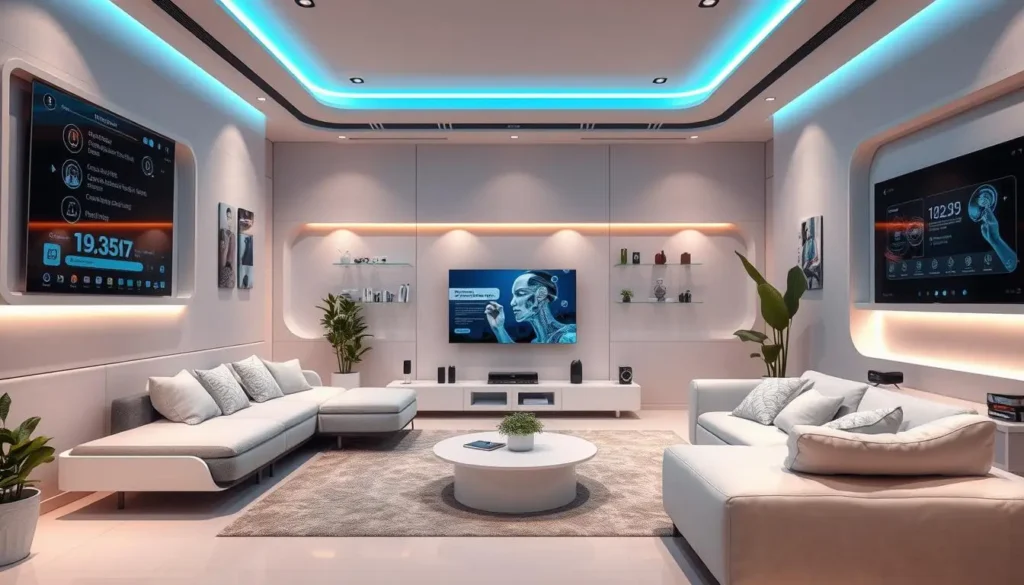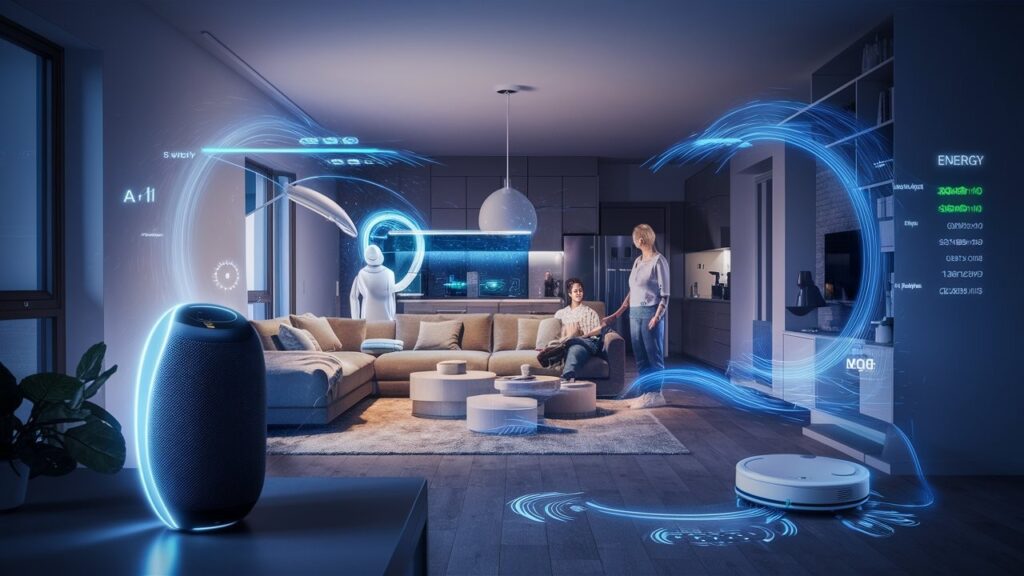In the last few years, the Gulf region has become one of the world’s fastest-growing hubs for smart technology. From tall glass towers in Dubai to modern villas in Riyadh, the idea of “smart homes” is no longer just a luxury—it’s becoming a lifestyle. At the center of this big change is Artificial Intelligence (AI), a technology that is transforming the way people live, manage their homes, and even interact with their living spaces.
In smart homes across the Gulf, AI is not just making life easier, it’s also making it safer, more efficient, and much more personalized. But how exactly is AI playing such a big role in Gulf homes today? Let’s break it down.
What Is a Smart Home?
A smart home is a house that uses technology to control different systems like lights, air conditioning, security, and even kitchen appliances. These systems are connected through the internet and can be managed using a smartphone or voice commands.
What makes a smart home “smart” is its use of AI. AI allows the system to learn your habits over time. For example, it can learn when you usually turn on the lights, what temperature you like the room to be, or even when you leave the house and need the doors locked.
AI Brings Comfort and Convenience

One of the biggest benefits of AI in smart homes is convenience. You no longer have to press switches or adjust settings manually. AI systems like Google Assistant, Amazon Alexa, and Apple’s Siri can do it all for you. In many Gulf homes, these voice assistants are being used to turn on the lights, play music, or even start the coffee machine.
AI learns your preferences over time. If you like a cool room when you sleep, the smart thermostat will automatically adjust the temperature every night without you needing to touch anything. This creates a living environment that feels truly personal.
In a region known for its hot climate, smart air conditioning systems powered by AI are a game-changer. They don’t just turn on and off—they study your behavior and make energy-saving choices by adjusting based on your location, room size, and time of day.
Energy Saving Made Simple
AI is also helping families in the Gulf save on electricity and water. Smart meters and connected home devices can detect when lights or appliances are left on in empty rooms and turn them off. This not only cuts down on bills but also supports the region’s growing push for sustainability and eco-friendly living.
Gulf countries like the UAE and Saudi Arabia are aiming to reduce their carbon footprint. By encouraging smart home technology, they are helping residents use energy more wisely. Many new buildings are now being designed as “green” homes with built-in smart systems.
Keeping Your Home Safe with AI
Security is another area where AI is making a big difference. Smart cameras with facial recognition, motion sensors, and alarm systems can now alert homeowners if anything unusual happens. Even when you’re away, you can get instant updates on your phone.
Some systems can even tell the difference between your pet walking around and a possible intruder, avoiding false alarms. Smart locks allow you to control who enters your home, and even grant access to family members or delivery people without handing over a key.
In places like Dubai, smart neighborhoods are being built where entire communities are protected by AI-based systems. These smart communities offer a high level of safety and comfort, giving residents peace of mind.
AI in the Kitchen and Beyond
AI is now reaching every corner of the house—including the kitchen. Smart refrigerators can suggest recipes based on what’s inside. Some can even alert you when items are about to expire.
Ovens and coffee machines can be programmed to start cooking or brewing while you’re still on your way home. Washing machines use AI to choose the best wash cycle based on the load. All of this adds up to saving time, reducing waste, and making everyday chores easier.

AI-powered robots are also entering homes in the Gulf. These robots can clean floors, remind you of appointments, or even assist elderly family members. As technology becomes more affordable, more families are likely to adopt these helpful tools.
Building Smart Cities One Home at a Time
The Gulf is not just focusing on smart homes but building entire smart cities. Projects like NEOM in Saudi Arabia, Masdar City in Abu Dhabi, and other future-ready developments are designed with AI as their foundation. These cities plan to use AI to manage traffic, energy use, waste, and even healthcare services.
Smart homes play a big part in this vision. When each home becomes part of a larger smart network, the entire city becomes more connected and intelligent. It helps city planners to make faster and better decisions, especially during emergencies or climate challenges.
Challenges and What’s Next
While AI is bringing many benefits, there are still some challenges. Privacy is a big concern for many people. Having cameras and microphones inside homes makes some residents uncomfortable. It’s important that developers and companies build strong rules to protect user data.
Another challenge is making this technology available to everyone. Right now, smart home systems can be expensive. But as the technology becomes more common, the prices are expected to go down. More local startups in the Gulf are also beginning to offer smart home solutions made especially for regional needs.
Looking ahead, the future of Gulf homes looks bright—and smart. AI is quickly becoming a trusted assistant in everyday life, helping residents save time, energy, and money while keeping them safe and comfortable. With the Gulf region investing heavily in technology, the dream of fully AI-powered homes may become a reality much sooner than we think.
Also read: Digital Banking is Changing the Future of Gulf Economies


